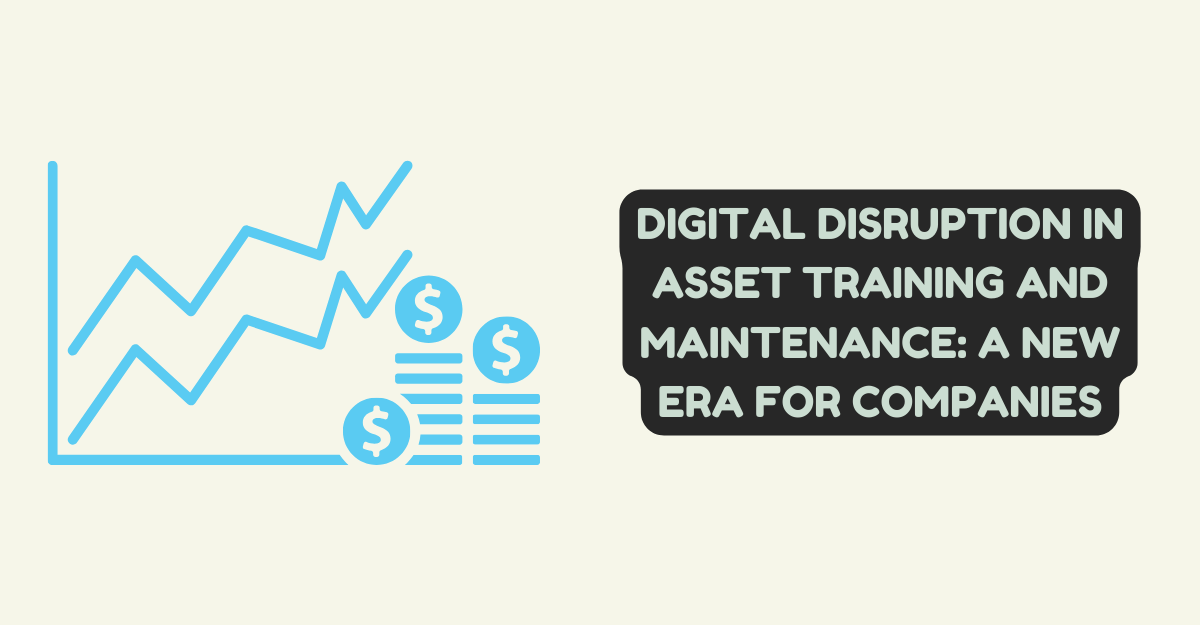
Digital Disruption in Asset Training and Maintenance: A New Era for Companies
In the realm of industrial and infrastructure management, the landscape is altering so rapidly that adapting to change is no longer an option – it’s a necessity for survival. Asset training and maintenance, historical cornerstones of operational stability and profitability, are undergoing a seismic shift. The crux of this transformation is digitalization. We are in the throes of a new era, one in which embedded sensors, predictive analytics, and augmented reality (AR) have become integral to the asset maintenance playbook.
The Accelerated Evolution of Asset Management
Traditionally, asset management was analogous to a reactive health-control system—fixing what was broken, upgrading incrementally, monitoring through periodic assessments, and upholding safety procedures through assemblage of historical data. Unfortunately, this approach often led to unexpected downtimes, compromised safety, and potentially catastrophic accidents. In stark contrast, the digitized ecosystem introduces a proactive, predictive model.
Today, cutting-edge technologies offer the ability to predict failures, optimize maintenance schedules through real-time data, and empower technicians with immediate access to historical, diagnostic, and prescriptive information via digitized workcards and advanced analytics and other sophisticated interfaces. This evolution is more than an innovation; it is a revolution that impacts not only the tools we use but also the skills necessary to wield them effectively.
Seminal Tech Enablers for Digital Maintenance
Sensor Networks and the Internet of Things (IoT)
The advent of IoT technology has given rise to an intricate network of sensors that monitor the performance and condition of assets in real time. Information about vibration, temperature, and other performance indicators is streamed directly to maintenance teams, allowing for early intervention and precise condition monitoring. This amalgamation of physical assets with digital intelligence is at the heart of the digital transformation currently reshaping asset management practices.
Data Analytics and Predictive Maintenance
The sheer volume of data generated by sensor networks can be overwhelming. However, with advanced analytics, this data contributes to the refinement of predictive models, which in turn drive intelligent maintenance decisions. Maintenance is no longer a regular, blanket task. Rather, it can be scheduled when it is determined to be most cost-effective, minimizing downtime without compromising operational safety.
Augmented Reality (AR) for Maintenance and Training
AR technology is redefining the way technicians are trained and perform maintenance tasks. By overlaying digital information onto the physical asset, AR systems provide step-by-step guidance, highlight critical components, and offer real-time data visualizations. This not only expedites the process but also mitigates the risk of errors, making AR a powerful ally in maintaining high-value, complex assets.
The Upskilling Imperative in the Age of Digital Disruption
The integration of these technologies demands a new cadre of skills from maintenance professionals. Traditional know-how is no longer sufficient; familiarity with data science, software operation, and multifaceted gadgets is becoming mandatory. The workforce of the future must be proficient in not only using these tools but also in understanding the algorithms and analysis that underpin them.
To address this upskilling imperative, companies must be proactive in their approach, offering continuous training programs and opportunities for hands-on experience with the latest technological advancements. They must encourage a culture of adaptability and lifelong learning, fostering an environment where employees can grow alongside the organization’s technological trajectory.
Conclusion
In the face of rapid digital disruption, the only viable strategy for companies is to become architects of their digital destinies; to not only keep pace with change but to lead it. This requires foresight, investment, and a commitment to the continuous evolution of skills and practices.
The path forward may seem daunting, but the dividends of digital readiness are immense. By embracing change, companies and professionals can rewrite the playbook on asset training and maintenance, ensuring that they are not left behind but at the forefront of a revolution that promises to redefine the very essence of operational excellence.






